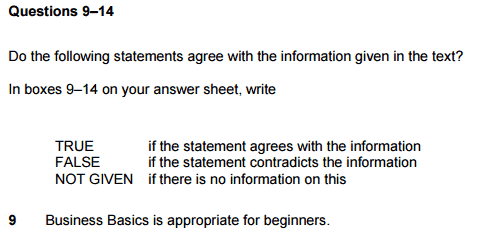There aren’t too many ways to instantly improve your IELTS score.  However, students can improve their exam technique very quickly and avoid these IELTS reading common mistakes, which can immediately improve your IELTS reading band score.
However, students can improve their exam technique very quickly and avoid these IELTS reading common mistakes, which can immediately improve your IELTS reading band score.
Here are some common mistakes students have when completing the IELTS Reading module. Do you have any of these problems?
Common Mistakes
1. Are you unsure about which words to be searching for in an article?
2. Do you struggle with all of the different task types?
3. Do you write the wrong number of words when answering the questions or write the answers in the wrong place?
4. Do you spend too long reading each of the different texts
5. Are you not sure when to skim, scan or read intensively?
All of the above are common mistakes, here are some solutions. Read the solutions below and match them to the problems.
Simple Solutions
a) Do practice test with strict time limits to improve your reading speed.
b) Be aware that all instructions are not the same, they vary from paper to paper. Make sure you pay particular attention to this underlining keywords in the question. Even though this seems obvious make it a habit to do this as failing not to can be disastrous.
c) Think about what reading skill is being tested when you read the question. If you are looking for a specific piece of information, such as a place name or number, then you need to be scanning.
If they are asking a general question about the text, such as what the purpose of the text is, then this would require skimming and any question requiring deeper understanding of a particular part of a text will require reading for detail/reading intensively.
d) Pick out keywords from the text and think of synonyms for those words, this can greatly increase your chances of locating the answer in the text confidently.
e) Practice different types of questions. It is tempting just to practice the types of questions that you enjoy or do not find very difficult. The phrase ‘you are only as strong as your weakest link’ is useful here. If there is one task type you know you are not good at then that might be the factor stopping you from getting the band score you desire. Work specifically on those weaknesses.
The Answers…
Just in case you are not sure the correct matching solutions are:
1-d, 2-e, 3-b, 4-a, 5-c
If you apply these IELTS reading improvement tips to your preparation you will be much more focused and are likely to score a higher grade band. Practice is of course still key to scoring highly too.
Saving The Best Tip Until Last…
IELTS is of course a test, and test writers often set little tricks in the reading test. Your job is to know when you are being tricked. Have a look at the question below to see what I mean:


In the statement for question 9 it asks about beginners. However, the paragraph does not have the word ‘beginners’ in it anywhere.
You can tell that the answer is ‘True‘ though if you know that a synonym for the word beginner is ‘basic‘ or ‘foundation‘, or even from the paraphrase ‘from the ground up‘.
Here the examiners are testing you vocabulary and general understanding of the passage. So, a key to improving your IELTS reading band score is to improve your vocabulary by constantly thinking about what synonyms are for any new words you are learning or have learned or short phrases that mean the same (paraphrases).
Synonym.com is a useful resource for this as is any good thesaurus, such as the Oxford Online thesaurus.
I hope you found this explanation of common IELTS reading mistakes valuable, if you have any helpful comments or suggestions of your own then please let me know below…



